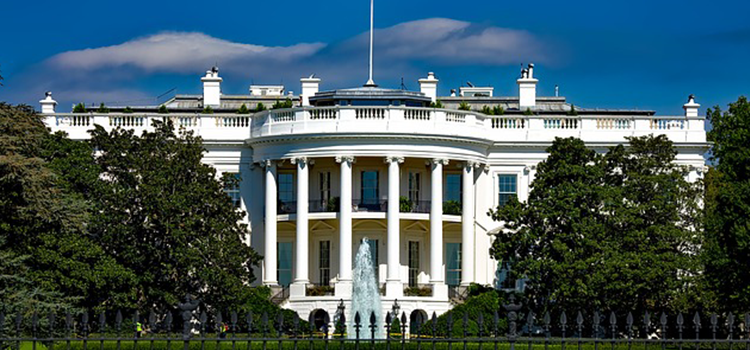Presidential immunity Under Clinton v. Jones
Historical
In Clinton v. Jones, 520 U.S. 681 (1997), the U.S. Supreme Court held that private civil lawsuits can proceed against a sitting President. In so ruling, the justices unanimously rejected President Bill Clinton’s argument that “in all but the most exceptional cases,” the Constitution affords the President temporary immunity from civil damages litigation arising out of events that occurred before he took office.
Facts of Clinton v. Jones
Former Arkansas state employee Paula Jones filed suit against President Bill Clinton under 42 U. S. C. §§ 1983 and 1985 and Arkansas law. She alleged that while Clinton was Governor of Arkansas, her made “abhorrent” sexual advances to her, and that her rejection of those advances led to punishment by her supervisors in the state job she held at the time.
Clinton promptly advised the Federal District Court that he would file a motion to dismiss on Presidential immunity grounds, and requested that all other pleadings and motions be deferred until the immunity issue was resolved. After the court granted that request, Clinton filed a motion to dismiss without prejudice and to toll any applicable statutes of limitation during his Presidency. The District Judge denied dismissal on immunity grounds and ruled that discovery could go forward, but ordered any trial stayed until petitioner’s Presidency ended.
The Eighth Circuit Court of Appeals affirmed the dismissal denial, but reversed the trial postponement as the “functional equivalent” of a grant of temporary immunity to which Clinton was not constitutionally entitled. The appeals court explained that the President, like other officials, is subject to the same laws that apply to all citizens, that no case had been found in which an official was granted immunity from suit for his unofficial acts, and that the rationale for official immunity is inapposite where only personal, private conduct by a President is at issue. The Eighth Circuit also rejected the argument that, unless immunity is available, the threat of judicial interference with the Executive Branch would violate separation of powers.
Supreme Court’s Decision in Clinton v. Jones
In a unanimous decision, the Supreme Court agreed with the Eighth Circuit that private civil lawsuits can proceed against a sitting President. Justice John Paul Stevens wrote on behalf of the Court.
In reaching its decision, the Court highlighted that the principal rationale for affording Presidents immunity from damages actions based on their official acts wasto enable them to perform their designated functions effectively without fear that a particular decision may give rise to personal liability. It went on to conclude that the rationale provides no support for an immunity forunofficialconduct.
The Court also held that the separation-of-powers doctrine does not require federal courts to stay all private actions against the President until he leaves office. “The fact that a federal court’s exercise of its traditional Article III jurisdiction may significantly burden the time and attention of the Chief Executive is not sufficient to establish a violation of the Constitution,” the Court held.
The Court further found that allowing the suit to proceed would not unduly burden or distract the President from his executive duties. Justice Stevens wrote:
If the Judiciary may severely burden the Executive Branch by reviewing the legality of the President’s official conduct, and if it may direct appropriate process to the President himself, it must follow that the federal courts have the power to determine the legality of his unofficial conduct. The burden on the President’s time and energy that is a mere by-product of such review surely cannot be considered as onerous as the direct burden imposed by judicial review and the occasional invalidation of his official actions.
Previous Articles
SCOTUS Wraps Up Oral Arguments for the Term
by DONALD SCARINCI on May 17, 2022
The U.S. Supreme Court has concluded its oral arguments for the October 2021 Term. The justices hea...
SCOTUS Rules Censure of Elected Board Member Didn’t Violate First Amendment
by DONALD SCARINCI on May 10, 2022
In Houston Community College System v. Wilson, 595 U.S. ____ (2022), the U.S. Supreme Court held th...
Supreme Court Breach Is Not the First Involving Roe v. Wade
by DONALD SCARINCI on
The recent disclosure of Justice Samuel Alito’s decision purporting to overturn Roe v. Wade is ar...
The Amendments
-
Amendment1
- Establishment ClauseFree Exercise Clause
- Freedom of Speech
- Freedoms of Press
- Freedom of Assembly, and Petitition
-
Amendment2
- The Right to Bear Arms
-
Amendment4
- Unreasonable Searches and Seizures
-
Amendment5
- Due Process
- Eminent Domain
- Rights of Criminal Defendants
Preamble to the Bill of Rights
Congress of the United States begun and held at the City of New-York, on Wednesday the fourth of March, one thousand seven hundred and eighty nine.
THE Conventions of a number of the States, having at the time of their adopting the Constitution, expressed a desire, in order to prevent misconstruction or abuse of its powers, that further declaratory and restrictive clauses should be added: And as extending the ground of public confidence in the Government, will best ensure the beneficent ends of its institution.




